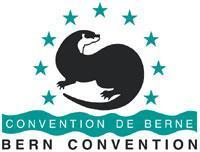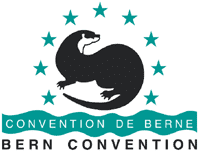October 5, 2020
 December 11, 2013: Bern Convention, Council of Europe: 3-6 December 2013
December 11, 2013: Bern Convention, Council of Europe: 3-6 December 2013
For the 25th year in succession, MEDASSET attended the Standing Committee Meeting of the Contracting Parties to the Convention on the Conservation of European Wildlife and Natural Habitats, the Bern Convention, in Strasbourg, France. The following sea turtle conservation problems in the Mediterranean were discussed:
Kyparissia Bay (Peloponnese, Greece): In summer 2013 there were more than 1,300 loggerhead turtle (Caretta caretta) nests in Southern Kyparissia Bay. Zakynthos, which is considered the Mediterranean’s most important nesting beach, had 1,000 (ARCHELON data). Although the area has been a European Union (EU) Natura 2000 site since 2002 the Greek government has failed in its obligations to introduce and enforce the necessary conservation and management measures. In 2012 the EC issued a Reasoned Opinion to Greece for its failure fully to protect the sea turtles. Since 2010, when MEDASSET first submitted a complaint about the degradation of the area, the issue has been raised on an annual basis. In 2013 the Convention opened a follow up Case File. MEDASSET presented a slideshow on actual and proposed developments during the 2013 nesting season. These included: housing construction; ploughing of sand dunes; illegal roads to support new construction; in shore fishing activity; the presence of heavy vehicles and camper vans; illegal beach structures; lights and obstructions, including wooden walkways and showers; plans for the construction of a series of breakwaters close to the shore and a major housing development. Harassment faced by volunteers of NGO ARCHELON was described. This included: withheld permission for an information kiosk; vandalisation of equipment, nests and protection measures; theft of equipment; erasure of turtle tracks, and the use of flash photography. The NGO noted deliberate use of flashlights to scare turtles off and prevent them from nesting. Such night disturbances were considered to have contributed to a recorded rise in the number of failed nesting attempts. Greece had not sent a Delegate to respond to the above. Describing the situation as “a matter of urgency” the Convention called for: an immediate “on-the-spot appraisal” of the site; support from the EU, and for the Case File to remain open.
Akamas Peninsula (Cyprus): The conservation problems of loggerhead and green turtles nesting on the peninsula’s shores were first brought to the attention of the Convention by MEDASSET in 1996. Due to lack of adequate protection of nesting beaches in Akamas and adjoining Limni, a Case File remains open since 1997. Protection of these habitats is to be provided via their designation as EU Natura 2000 sites. The representative of NGO Terra Cypria stated that the site boundaries proposed by the government do not adequately protect the sea turtle habitats, especially in the Limni area. In addition, Terra Cypria presented images of sand ploughing on Limni beach during the 2013 nesting season. A permit was provided to develop the largest golf course and villa complex in the Mediterranean at the back of Limni beach, despite the NGO’s objections that is advocating for a 500 m protective buffer zone between the complex and the nesting beach. Terra Cypria called on the Committee to continue monitoring this issue by keeping the file open and to encourage Cypriot authorities to fully implement recommended conservation measures, to put in place an early warning system against illegal habitat damage, and to report back to the Convention on progress regarding the Natura 2000 site designation. MEDASSET seconded theses requests. The delegate of Norway highlighted that progress has been too slow and that habitat types like those found in Akamas Peninsula are disappearing throughout the Mediterranean. In the absence of a delegate from Cyprus, the Committee decided to keep the Case File open and stated it will continue to liaise with the EU on this issue.
Fethiye (Turkey): Severe decline in nesting due to the ongoing degradation of Fethiye loggerhead nesting beaches to accommodate tourism in this Specially Protected Area, drove MEDASSET to submit a complaint to the Convention in 2009, and it has been raising the issue ever since. Although some conservation measures were consequently applied by Turkish authorities in 2011 these were only partially implemented and were neither improved nor sustained in 2012. MEDASSET presented an illustrated account of the 2013 situation on Fethiye nesting beaches to the Standing Committee meeting. New businesses causing habitat damage have been established on nesting beaches, including the last remaining pristine section, further encroaching on the available habitat through the installation of unmanaged beach furniture and permanent wooden structures. MEDASSET again called for action to mitigate longstanding issues of: littering, more plantings, in-shore water-sports, light pollution, and vehicular access to beaches. The lack of visitor management during night and day were also highlighted. The delegate of Turkey accepted that “some of the images are disturbing” and regretted that due to Ministry restructuring a response was not available. MEDASSET’s call for a Case File to be opened was supported by the delegate of Norway who also called for the Convention’s view on commissioning an “on-the-spot appraisal”. The Convention opened a Case File and decided to contact the Turkish Authorities immediately with a reporting request and proposals of assistance, including the arrangement of an “on-the-spot appraisal”.
Kazanli (Turkey): MEDASSET has been reporting to the Bern Convention on turtle conservation measures in Kazanli since 1999. The case of the runoff of highly toxic waste into the sea from Krumsal Soda Chromium factory on one of the most important nesting beaches of green turtles in the Mediterranean was first brought to the Convention in 2000. A follow up Case File was opened on this issue by the Convention in 2002 and then provisionally closed in 2004. Although the issue of Kazanli has remained on the Convention’s agenda, no update or report by the Turkish authority on progress on implementing recommended measures for the removal of the 1.5 million tonnes of hazardous toxic waste has been submitted since 2009. MEDASSET presented a PowerPoint focussing on the Convention’s Recommendation no. 95 (2002) stressing the lack of information about: removal of the toxic waste; erosion; agricultural runoff; greenhouse removal, and light pollution etc. The Turkish delegate informed the meeting about mitigation measures including: awareness raising programmes targeted at visitors; local volunteer beach cleaning activities; light screening by the municipality; seasonal vehicular traffic bans; chemical analysis has been showing waste compounds from the chromium factory to be well below standard values. Illegal buildings and greenhouses remain however. The removal of solid toxic waste has been proceeding since November 2009. A permanent site for the disposal of the neutralised waste is still sought. So far, only 200,000 out of 1.5 million tonnes of the toxic waste have been treated. The Committee decided to follow up developments relating to this issue at its next meeting.
Patara (Turkey): Threats to Patara Specially Protected Area were first raised by MEDASSET in 1988. In 1996 a follow up Case File was opened and Recommendation No. 54 was adopted. The File was closed in 2001, but MEDASSET continued to submit reports to the Standing Committee until 2009. Patara, an archaeological site of international importance, includes four distinct civilisations and a loggerhead nesting site. In 2012 MEDASSET submitted to the Convention a complaint regarding a large-scale holiday home construction project (400 – 750 villas). No information is available on the existence of an EIA or carrying capacity study. Pressure and disturbance on turtles and the nesting beach will increase many fold after completion of this project, either in part or as a whole. 27 villas and swimming pools were completed in 2013; construction of more villas is to commence in 2014. The scale of this project should urgently be re-evaluated. The Turkish Delegate stated that due to ministry restructuring a response was not available. MEDASSET’s call for the opening of a follow up Case File was accepted by the meeting.
Notes:
1. List of decisions and texts adopted at the 33rd meeting of the Standing Committee: http://www.coe.int/…
2. Links to Reports (with photographs):
Kyparissia Bay, Greece
Report by MEDASSET
Report by ARCHELON: wcd.coe.int/…
Akamas, Cyprus. Report by Terra Cypria: wcd.coe.int/…
Fethiye, Turkey. Report by MEDASSET
Patara, Turkey. Report by MEDASSET
3. The Bern Convention Case File system is based on complaints about possible breaches of the Convention that are processed by the Secretariat, the Bureau and the Standing Committee. The purpose of the opening of files is to find a satisfactory solution to problems encountered in implementing the Convention and to monitor the means chosen to resolve them. When the Standing Committee or its Bureau considers that further information is needed, on-the-spot visits are conducted by independent experts. Many files lead to Recommendations being adopted by the Standing Committee that are addressed to a country or group of countries to remedy the identified problem. For further information: www.coe.int/…



Comments are closed.